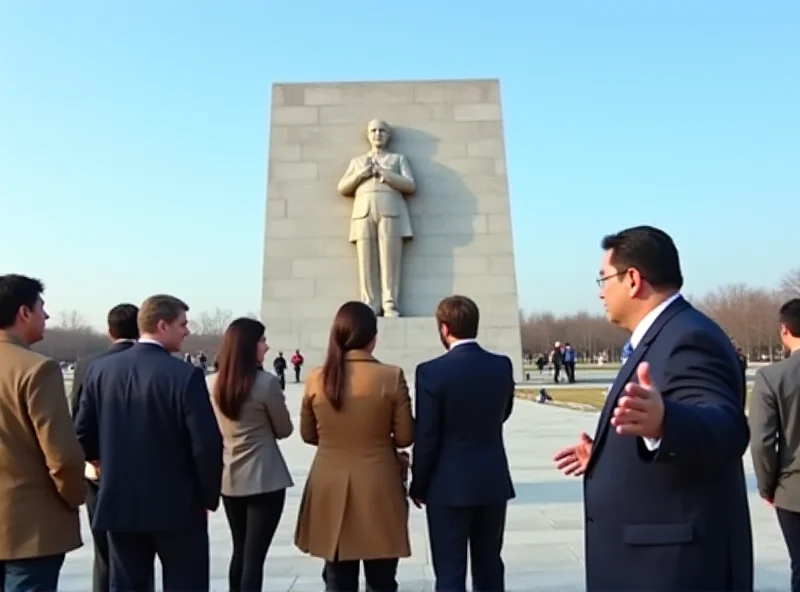North Korea has once again opened its doors to Western tourists, marking the end of a five-year period of isolation. The first group of visitors recently crossed the border, signaling a potential shift in the country's approach to international relations and tourism.

A Historic Return
The group of Western travelers, comprised of citizens from various European countries, Australia, and Canada, made history by being among the first to return to the Democratic People's Republic of Korea (DPRK) since the country closed its borders at the start of the Covid-19 pandemic in early 2020. The trip was facilitated by a Beijing-based travel company specializing in tours to North Korea.
This reopening comes as a surprise to many, given North Korea's strict border controls and cautious approach to international interaction. The resumption of tourism suggests a possible desire by Kim Jong-un's government to generate revenue and improve the country's image on the global stage.
Experiences Inside the Hermit Kingdom
While details of the tourists' experiences inside North Korea remain limited, reports suggest that some visitors, particularly those from Britain, were surprised by what they encountered. The tightly controlled environment and unique cultural landscape of North Korea offer a stark contrast to the Western world.

The return of Western tourism is a significant step for North Korea, and its implications for the country's future remain to be seen. Will this be a sustained effort to engage with the outside world, or a temporary measure? Only time will tell.
Looking Ahead
The success of this initial group's visit will likely influence future tourism initiatives. If the experience proves positive for both the tourists and the North Korean authorities, it could pave the way for a broader reopening of the country to foreign visitors. However, the political and social complexities of North Korea suggest that any such expansion will be carefully managed and closely monitored.

For now, the world watches with interest as North Korea cautiously re-enters the global tourism landscape.
